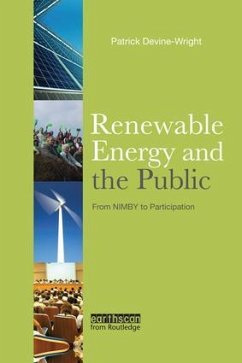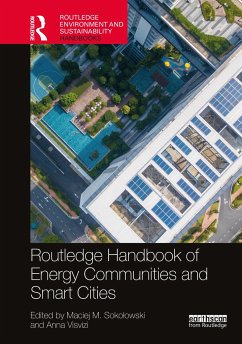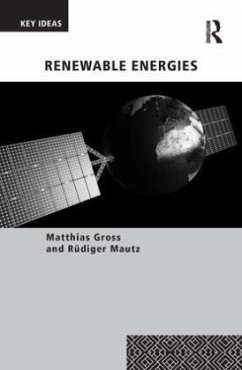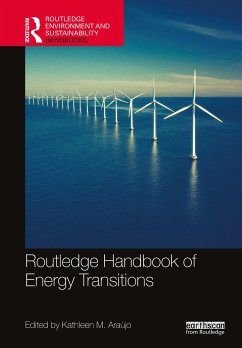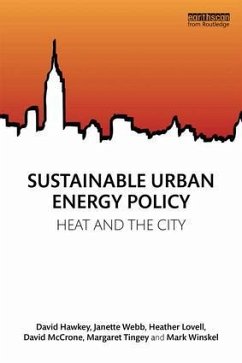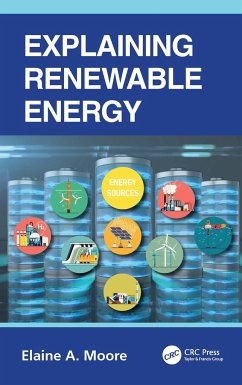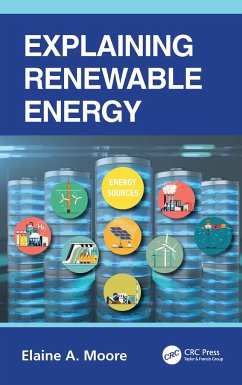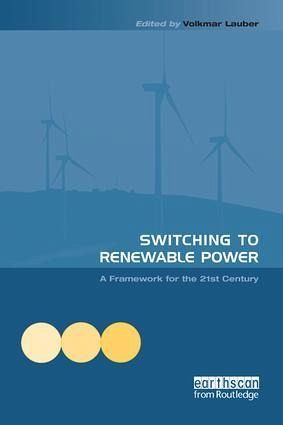
Switching to Renewable Power
A Framework for the 21st Century
Herausgegeben: Lauber, Volkmar

PAYBACK Punkte
16 °P sammeln!
Renewable energy has enjoyed relatively good - and sometimes extraordinary - growth in recent years, in particular photovoltaics and wind; but it will be difficult to sustain such rates of diffusion on a global basis. A more complete transition to renewable energy is required on a demanding timescale set by climate change and fossil fuel depletion. This book analyses strategies for promoting renewable energy within the context of a rapid energy transition, using case studies from different countries over the past 30 years.Having described the global context in detail, covering oil and gas depl...
Renewable energy has enjoyed relatively good - and sometimes extraordinary - growth in recent years, in particular photovoltaics and wind; but it will be difficult to sustain such rates of diffusion on a global basis. A more complete transition to renewable energy is required on a demanding timescale set by climate change and fossil fuel depletion. This book analyses strategies for promoting renewable energy within the context of a rapid energy transition, using case studies from different countries over the past 30 years.Having described the global context in detail, covering oil and gas depletion, climate change, third world development and the potential for renewable energy, the authors evaluate support mechanisms at national and international levels, offering readers a clear understanding of the regulatory framework and an opportunity to promote renewable energy effectively.This book offers energy policy makers, renewable energy professionals, energy consultants and students a platform for development and an invaluable research text.Contributing authors include: Jorg Schindler and Werner Zittel, Ludwig Bohlkow-Systemtechnik, Germany; Ian Rowlands, University of Waterloo, Canada; Giulio Volpi, WWF Europe; Kristian Hvitfelt Nielsen, Aarhus University, Denmark; Staffan Jacobsson, Chalmers University of Technology, Sweden; Peter Connor, University of Warwick, UK; Ole Langniss, Centre of Solar Energy and Hydrogen Research in Baden-Wurttemberg, Germany; Ryan Wiser, Lawrence Berkeley National Laboratory, US; David Elliott, The Open University, UK; and Frede Hvelplund, Aalborg University, Denmark





